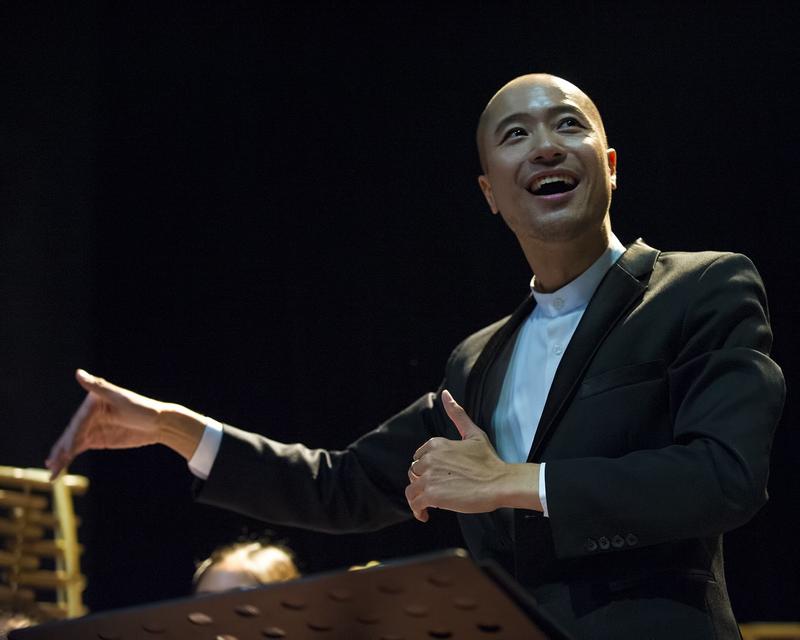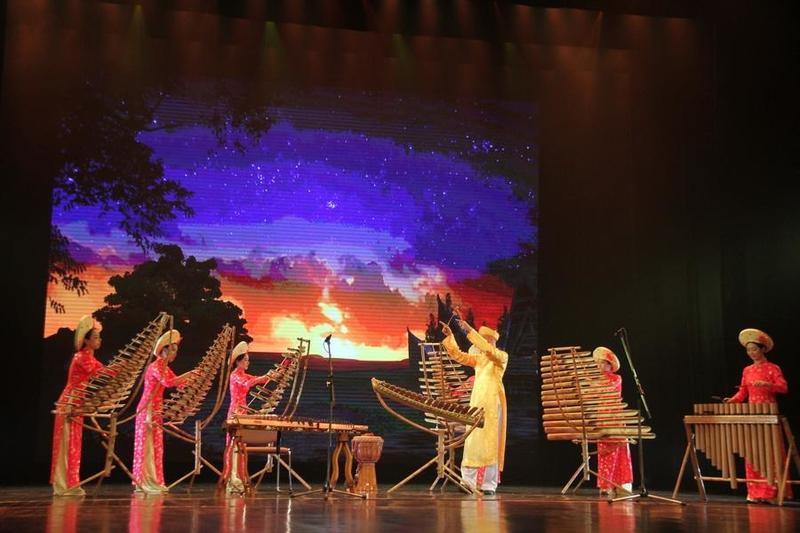Editor's note: This news column showcases stories from around the world that bring a touch of positivity to the fight against the deadly coronavirus.
 This undated photo shows Vietnamese musician Dong Quang Vinh. (PHOTO PROVIDED TO CHINA DAILY)
This undated photo shows Vietnamese musician Dong Quang Vinh. (PHOTO PROVIDED TO CHINA DAILY)
The pandemic has drastically restricted international travel, but a Vietnamese musician has taken his music across borders to connect the minds and souls of music lovers in China and Vietnam.
"With many performances being canceled, the pandemic has had a huge impact on musicians and artists," said Dong Quang Vinh.
"We used to travel frequently to Shanghai and many other cities in China to attend musical events, but (due to the pandemic), we haven't been to China for more than a year. Sometimes we joke that we feel like being in a completely different world."
Vinh, born into a family of musicians, studied music in China from 2004 to 2013. After returning to his homeland in 2013 he was appointed conductor of the Vietnam National Opera and Ballet.
During the pandemic people have faced a lot of pressure as they worry that they or their relatives may become infected or lose their jobs because of the economic slowdown. In these circumstances music can play a positive role.
Dong Quang Vinh, Vietnamese musician
He is also the director of Suc Song Moi (which means the new vitality) Bamboo Ensemble, of which his wife Mo Shuangshuang, a Chinese pianist whom he met during his studies at the Shanghai Conservatory of Music, is among the members.
Though the pandemic has made performing overseas impossible, Vinh, by shifting online, continues to promote exchanges between China and Vietnam through music. This is something he has been doing for a long time, driven by his interest in traditional Chinese music from a young age.
ALSO READ: Live music revival through pandemic
His ensemble is now preparing a prerecorded performance for China-ASEAN Culture and Art Week, to be held from Dec 8 to 14. Vinh said he is also in close contact with musicians and teachers in Shanghai, discussing topics that range from how to teach young musicians during the pandemic to new ideas for performances and lectures.
"Probably only Vietnam, China and a few other countries are gradually allowing large gatherings and resuming events like concerts and performances, thanks to their rigorous pandemic-control measures," Vinh said.
Although Vietnam has been free of local transmission of COVID-19 for more than 70 consecutive days, it is still impossible for Vinh and his team to travel between Shanghai and Vietnam for potential performances.
 Artists from China and Vietnam, including China's Shanghai Dance Theater, Shanghai National Orchestra, Shanghai Acrobatic Troupe, Shanghai Conservatory of Music, Shanghai Symphony Orchestra and Vietnam's "Suc Song Moi" Bamboo Ensemble, jointly stage the "China-Vietnam friendship art performance" in Hanoi, capital of Vietnam, on May 13, 2016. (PHOTO / XINHUA)
Artists from China and Vietnam, including China's Shanghai Dance Theater, Shanghai National Orchestra, Shanghai Acrobatic Troupe, Shanghai Conservatory of Music, Shanghai Symphony Orchestra and Vietnam's "Suc Song Moi" Bamboo Ensemble, jointly stage the "China-Vietnam friendship art performance" in Hanoi, capital of Vietnam, on May 13, 2016. (PHOTO / XINHUA)
" (Organizations) in China are inviting us to record our performances and send them high-resolution video so they can play it in local theaters, and ensembles there will perform with it," he said. "I think this is a very meaningful move."
With cultural exchanges between China and Vietnam greatly affected by the pandemic, including the imposition of distancing rules, Vinh said people had needed to find innovative ways to deal with the challenges.
For example, he said, musicians can post their performances online, hold virtual discussions with peers overseas and think about how to connect the music resources in both China and Vietnam after the pandemic.
READ MORE: Orchestra bridges social distance with fans via online shows
When I listen to a nice song or a nice piece of music from China I want to know more about China, and I feel that I love it more. Similarly, when Chinese people listen to Vietnamese folk music… they will become interested in Vietnam and even want to visit it.
Dong Quang Vinh
Vinh has also been posting updates on social media platforms such as WeChat and Facebook to pass on his music to people outside Vietnam.
"During the pandemic people have faced a lot of pressure as they worry that they or their relatives may become infected or lose their jobs because of the economic slowdown. In these circumstances music can play a positive role."
Art forms connections
Music encourages people to become acquainted with other cultures and to form connections with others, Vinh said.
"When I listen to a nice song or a nice piece of music from China I want to know more about China, and I feel that I love it more. Similarly, when Chinese people listen to Vietnamese folk music… they will become interested in Vietnam and even want to visit it."
In addition to taking music from Vietnam to China, Vinh has found other ways to help promote bilateral cultural exchanges.
He is a judge for talent shows during the annual language proficiency competition of Hanyu-Qiao, or Chinese Bridge, in Vietnam held by the Confucius Institute at Hanoi University.
Last month Vinh was invited to be the music adviser and conductor for the university institute's choir.
Vinh said he hopes to organize more and bigger performances once the pandemic is over.
Contact the writers at kelly@chinadailyapac.com



